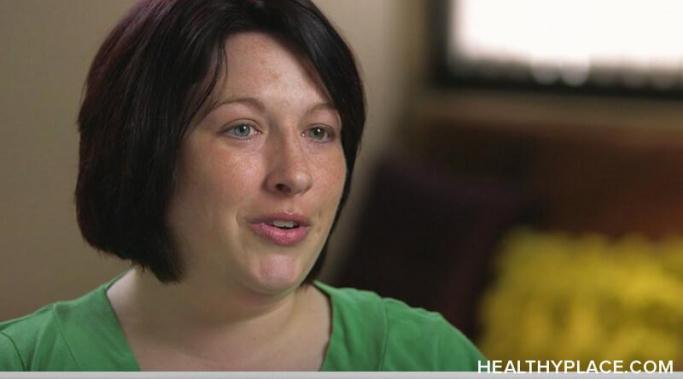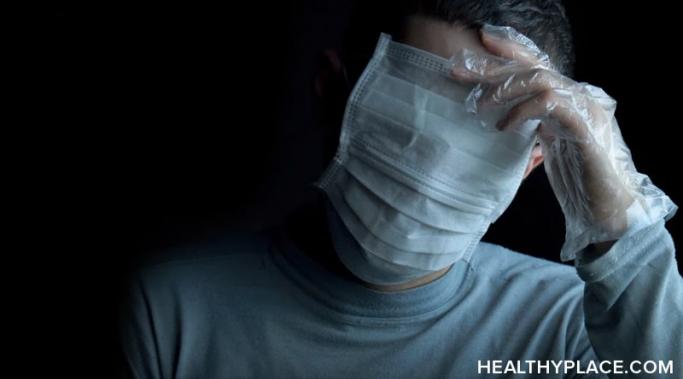Recently, I got my blood levels tested for a schizoaffective disorder medication I’m taking. My levels were slightly low. Let me tell you why it’s important that I get my blood levels tested regularly for this particular medication for my schizoaffective disorder.
Schizoaffective Disorder
One thing I’ve learned about having schizoaffective disorder is how to use coping skills for my symptoms. Some of the skills I’ve developed myself and some I’ve learned in therapy. Here are some of the coping skills I’ve learned for the symptoms of my schizoaffective disorder. (Note: This post contains a trigger warning.)
About 16 years ago, I was prescribed an antipsychotic for my schizoaffective disorder, and it triggered obsessive-compulsive disorder (OCD) symptoms. Here are some of the ways I acted with schizoaffective disorder and OCD.
My physical therapist, Marge, really surprised me by starting a conversation about mental health stigma on my last visit with her. I need to be in physical therapy because I’m recovering from double knee replacement surgery. Our conversations have revealed that she’s very anti-mental health stigma. Some people aren’t, so I just don’t discuss it with them. Physical therapy suddenly took on a whole new dimension.
Schizoaffective anxiety and recovering from surgery are a particularly bad combination. Yesterday, I was picking up some packages from the mail room. The mailroom is down a flight of stairs from our apartment. Only one package of four free COVID tests would fit in my tote bag, so I had to carry the other one by hand. I have a system for getting the mail on such occasions since I just had double knee surgery, and it’s hard for me to get up and down stairs. Schizoaffective anxiety in recovery makes it harder because I'm scared.
I just tested positive for COVID-19 on top of managing schizoaffective disorder and anxiety, and having just had the second of double knee replacements.
Now, I have therapy skills for my schizoaffective disorder, but that wasn't true when I was younger. My first psychotic episode hit 25 years ago this holiday season, when I was a student at the Rhode Island School of Design (RISD). I was only 19 years old—terrified and somewhat unaware of what was happening. I’ve grown up a lot since then. You can grow and change while living with a mental illness. I know because I did, and my mental illness changed with me. What helped me and my schizoaffective disorder grow up, along with medication, are skills I learned in therapy. Here are some of the ones I found to be most helpful.
My psychiatric nurse practitioner is reducing my anti-anxiety medication for my upcoming knee surgery when I will be on painkillers. She says long-term use of an anti-anxiety medication can cause cognitive impairment. My therapist says it’s addictive, which I already knew from decades of using it on an as-needed basis. Here's what reducing my anti-anxiety medication has been like.
I’ve written a lot about my past knee replacement surgery in my right leg. But I have another knee replacement in my left leg in less than a month. Since I know what to expect, I can prepare better this time. Hopefully, because of this, my schizoaffective anxiety won’t flare up as badly because of the surgery.
I previously wrote that I would never go on another weight loss medication. As it turns out, I lied.









